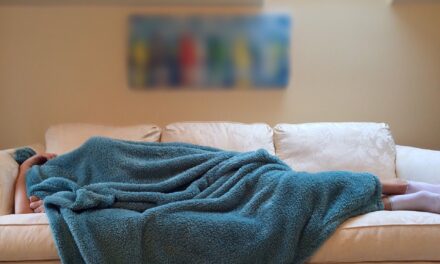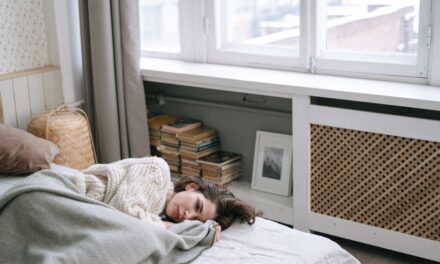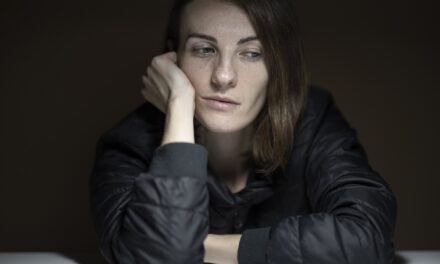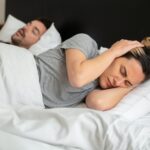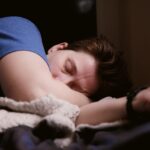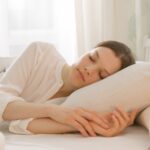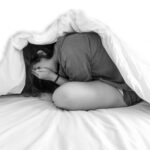If you are someone that struggles to fall asleep at night, but you don’t want to rely on medication, then you will probably be left looking for alternative ways to improve your sleep.
Thankfully, there are some things that you can do to fall asleep faster without taking any medication, you just need to find out what they are, which is something that we are going to help you with.
In this article, we are going to take a look at some of the different ways that you can fall asleep faster. Whether these are things that you can do throughout the day, before you go to sleep, or while you are in bed, there will be various things that you can try.
What to expect from our article
- 1 How to Make Yourself Fall Asleep Faster Without Medication
- 2 The 4-7-8 Breathing Method
- 3 Give Yourself a Schedule
- 4 Understand How Lighting Affects Your Body Clock
- 5 Yoga, Meditation, and Mindfulness
- 6 Write Before You Go to Bed
- 7 Avoid Caffeine
- 8 Don’t Take Naps During the Day
- 9 Make Your Sleep Environment Comfortable
- 10 Products That Can Help You Fall Asleep Faster
- 11 Supplements That Can Help You Fall Asleep Faster
How to Make Yourself Fall Asleep Faster Without Medication
Thankfully, if you are someone that struggles to get to sleep when you go to bed at night, there are some things that you can try to help improve the situation. We are going to leave some ideas below for you to look at.
The 4-7-8 Breathing Method
Something that many people and experts swear by is the 4-7-8 breathing method, which is a simple yet powerful breathing method that promotes calmness and relaxation. It is the perfect thing to try if you want to unwind before you go to bed.
This method is based on the breath control techniques that are learned from yoga, and it involves a breathing pattern that relaxes the nervous system. You can practice this any time that you feel anxious or stressed, which are things that lots of people experience when they are trying to fall asleep.
- The first step of the 4-7-8 breathing method is to place the tip of your tongue behind your upper front teeth.
- Now, exhale completely through your mouth and make a whoosh sound.
- Close your mouth, then inhale through your nose while counting to 4 in your head.
- Next, hold your breath and count to 7.
- Open your mouth and exhale completely, while counting to 8.
- Repeat this cycle at least another 3 times.
This technique can help you to relax and make you fall asleep more quickly.
Give Yourself a Schedule
Something that is really important for being able to fall asleep faster is having a regular sleep schedule. Your body has its own regulatory system, which is called the circadian rhythm. This is an internal body clock that tells your body when to feel alert during the day, and when to feel sleepy at night.
If you wake up and go to bed at the same time every day, it will allow your internal clock to remain on a regular schedule. When your body adjusts to this schedule, it will be much easier to fall asleep and wake up every day.
It is also just as important to make sure that you get between 7 and 9 hours of sleep every night. As well as this, you should give yourself at least 30 to 45 minutes to wind down in the evening before you go to bed. This will give your body and mind time to relax and prepare for sleep.
Understand How Lighting Affects Your Body Clock
Light is something that can have a major influence on your body clock, which is what regulates sleep and wakefulness. Irregularly exposing yourself to light can cause disruption of your circadian rhythms, which will make it harder to fall asleep and stay awake.
Bright light during the day will tell your body to stay alert, and both natural daylight and artificial light can have this effect. During the night, darkness will promote feelings of sleepiness, and it can boost the production of melatonin, which is an essential hormone for sleep.
This is why you should avoid using electronic devices, like your phone, Kindle, or TV before bed, as the light confuses your brain into thinking that you should be awake. Using electronic devices before bed will make it harder for you to fall asleep, and even stay asleep. These devices emit blue light, which has been found to suppress melatonin.
Using these devices will also keep your mind in an active state, so it is recommended to avoid using electronic devices before you go to bed. If you do need to use electronic devices in the evening, then you should consider blocking the blue light either through the settings on the device, or by using blue light glasses.
Yoga, Meditation, and Mindfulness
When we are stressed, it can become much more difficult to fall asleep. Things like yoga, meditation, and mindfulness are excellent for helping to calm the mind and relax the body. All of these things have been shown to improve sleep.
Yoga can be used to encourage the practice of regular breathing patterns and body movements that help to release any stress and tension in your body. Meditation can help to enhance your melatonin levels and allow the brain to enter a better state for sleeping. Mindfulness can help you to maintain focus on the present.
Write Before You Go to Bed
One of the main reasons why some people struggle to fall asleep is that their thoughts are running around in their brain and keeping them awake. This can produce feelings of anxiety and stress, which can generate negative emotions and keep you from falling asleep. Writing before you go to sleep can be a great way to unload all of your thoughts and emotions, clearing your mind and making it easier to fall asleep.
Avoid Caffeine
Caffeine is a stimulant that can be found in various foods and beverages, and it is mostly used to fight fatigue and stimulate alertness. Consuming caffeine in the late afternoon and evening can affect your sleep quality. It is recommended that you avoid caffeine entirely for at least 6 hours before you go to bed.
If you are someone that loves to enjoy a warm drink in the evening, then you should try out chamomile tea, or something with similar properties, as this has been shown to promote sleep and relaxation.
Don’t Take Naps During the Day
If you are feeling tired throughout the day, you would think that the logical thing to do would be to have a nap. However, while it might make you feel more awake and alert, it can affect your sleep. You should try to avoid napping any time after 3 pm at least, but avoid it altogether if you can.
If you do need to nap, then you should try to limit yourself to a maximum of 30 minutes, and avoid taking naps in the evening. This shouldn’t disrupt your sleep too much.
Make Your Sleep Environment Comfortable
You might be surprised at how much a comfortable mattress, pillows, and other bedding can affect the quality of your sleep. It is recommended to have a medium-firm mattress if you are struggling with sleep quality, and it can even prevent sleep disturbances and muscular discomfort.
Using good quality pillows is also really important, as it can affect the curve of your neck, the temperature, your comfort, and more while you are sleeping. Some people also find that weighted blankets can help to reduce body stress and improve your sleep. Lastly, make sure that you are wearing comfortable clothing when you go to bed that will keep you at the perfect temperature.
There may even be additional things that you can do in your room to help make it a more comfortable and calming environment for you to sleep in.
Products That Can Help You Fall Asleep Faster
Following on from our last point about creating a comfortable sleep environment, some people suggest that the following products have helped them to fall asleep faster:
- Weighted blankets
- Medium-firm mattresses
- Orthopaedic pillows
Supplements That Can Help You Fall Asleep Faster
There are certain supplements that you can take that can help you fall asleep faster. They have been shown to encourage sleep by either boosting the production of sleep-promoting hormones, or by calming brain activity. Some of the supplements that can help you fall asleep faster are:
Magnesium – Magnesium helps to activate the neurotransmitters that are responsible for sleep. Taking up to 500 mg per day of magnesium has been known to improve sleep.
5-HTP – This is a type of amino acid that can boost the production of serotonin, which is something that has been linked to the regulation of sleep.
Melatonin – While your body does naturally produce melatonin, it can also be taken as a supplement to help regulate your sleep. Taking between 0.5 and 5 mg of melatonin around 2 hours before you want to go to sleep can be beneficial.
L–theanine – This is an amino acid that has sedative properties. Even though it doesn’t necessarily induce sleep, it can help make you feel more relaxed. Doses of up to 400 mg per day can be helpful.
GABA – This is a compound that is produced in the brain, which inhibits certain transmitters, allowing the central nervous system to relax.


